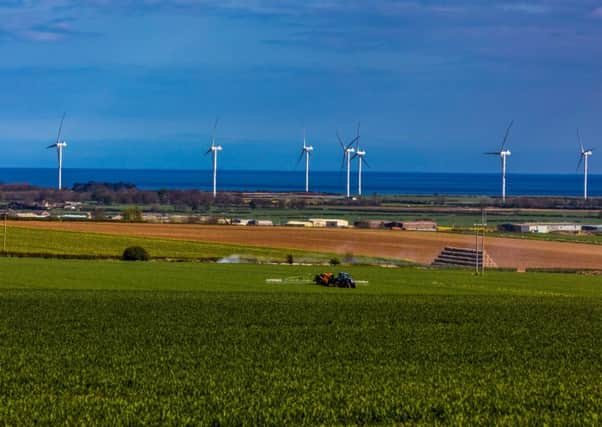UK farmers make final weed killer plea to Commission


Frustrated by the perceived politicising of the fate of active chemical ingredient glyphosate, amid unproven cancer-causing claims by campaigners, the UK’s farming unions have jointly written to commission president Claude Juncker on behalf of their combined 70,000 UK farmer members.
Union leaders urge the Commission to abide by the safety rulings of their own scientific bodies and reauthorise a chemical which they have said would threaten countryside livelihoods and risk significant damage to the economy if it is banned.
A decisive meeting is expected to be held on Thursday.
Advertisement
Hide AdAdvertisement
Hide AdTheir firm plea has also been sent to the Commission’s agriculture commissioner Phil Hogan and health commissioner Vytenis Andriukaitis.
A petition signed by more than one million Europeans calling for glyphosate to be banned over health fears was submitted to the Commission in the summer.
However, both the European Food Safety Authority (EFSA) and the European Chemicals Agency (ECHA) have concluded that glyphosate cannot be considered carcinogenic.
Yet last week a European committee featuring representatives of EU member states could not reach a required majority on whether to relicense the chemical for 10 more years.
Advertisement
Hide AdAdvertisement
Hide AdThe current license for glyphosate runs out before Christmas.
In their letter, farming leaders wrote: “The UK farming unions firmly believe that the EU’s science-based decision making process should be upheld and glyphosate reauthorised for the maximum period possible.
“Both the EFSA and the ECHA have concluded that glyphosate cannot be considered carcinogenic and therefore there should be no safety concerns related to its reauthorisation for the maximum period of 15 years.”
The letter continues: “If European and UK farmers are to meet the challenge of producing more to feed a growing population and to build resilience to climate change, we must be armed with all the tools in the toolbox, and access to glyphosate is a vital part of this.”
Advertisement
Hide AdAdvertisement
Hide AdRather than allowing the Commission’s reauthorisation process to take its course, European politicians are accused of succumbing to scaremongering and wading into a needless debate. A relicensing period for glyphosate had initially been mooted for 15 years, only for the period to be scaled back to a decade and there were suggestions after last week’s vote deadlock of that recommended term again being revised down to convince more member states to vote for its re-approval.
The British government had voted in favour of its renewal.
In their letter to Mr Juncker and his commissioners, the unions add: “The UK Farming Unions ask you to stand by your own science and regulatory procedure, and reauthorise glyphosate for the maximum period possible and not allow the issue to be politicised any longer.
“Not delivering would jeopardise confidence in the whole EU food safety system and in particular in EFSA’s role.”
Glyphosate is used mostly by farmers to clear weeds from fields before planting crops.
Advertisement
Hide AdAdvertisement
Hide AdThe UK’s farming union’s said farmers need the chemical to provide “a safe, secure and affordable food supply while increasingly responding to consumer demand for greater environmental sensitivity”.
They reason that like all other pesticides, glyphosate is regulated and is only present within safe levels in the food chain due to the imposing of maximum residue levels.
Spray operators have to be trained and certified to use glyphosate which is in common use as an ingredient in Monsanto’s Round Up.
Farmers also say its use reduces the need for ploughing thereby cutting emissions.